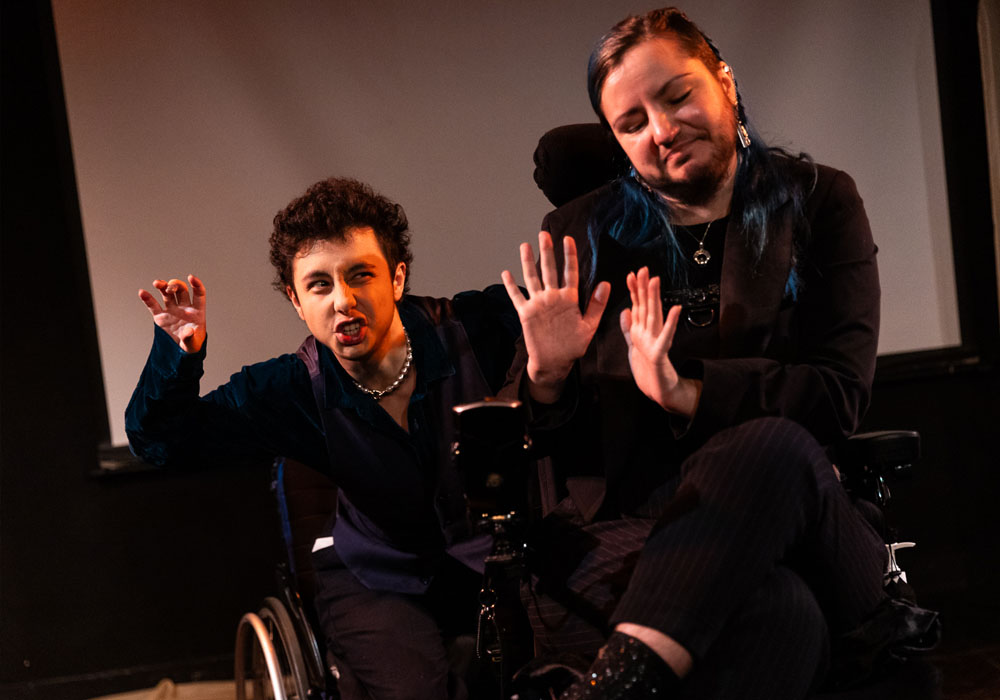Award category:
CRIPtic Arts is making space for disabled people to flourish in the arts.
Over the past 12-18 months we have been running programmes ranging from connecting communities to supporting groundbreaking work from disabled artists at the top of their fields. We have given paid work to hundreds of disabled people, helping them to develop pathways into sustainable careers, as well as having offered free workshops, 1:1 support and community spaces, and having paid artists on our development programme to learn.
This changes the lives and pathways of individuals, but also the sector. The more experienced disabled professionals there are working within it, the more access can be centered in the sector – and we emphasize this to every organisation we work with.
By creating paid opportunities for disabled people in almost all roles in the performance sector, we haven’t just built their careers, we’ve demonstrated that disabled creatives can create truly groundbreaking work, staging it at venues including HOME Manchester, the Barbican Centre, Camden People’s Theatre, Bloomsbury Theatre and online. We have committed to supporting artists from the early stages of their career onwards, believing that sustained engagement and a long-term commitment is what many disabled creatives need.
With our research into everything from the barriers facing people with high physical access requirements to disabled people’s experiences in the literature sector, we are providing the evidence our campaigns need. This includes the Accessible Arts Initiative, designed to set a floor for the minimum level of access provision required for an event to be viable, and set a basis for venues to commit to never breaching these. We are also committed to implementing practical change, including a project developing a community-centred captioning tool.
We come from the community, represent the community, and are changing the arts for the community.
We have created hundreds of paid roles for disabled people, supporting people breaking into careers in the arts – but by making bold, disabled-led performance work we’re also changing the way audiences perceive disabled people. We are leaders, creatives, passionate performers and designers, and we’re ensuring non-disabled people have to change their perceptions to realise that this is the case.
As an organisation we’re keen to develop ourselves, our strategy and planning, and grow the work we do. We want to expand our work on accessibility, from research to campaigning, but also our production work, showcasing more exceptional work with disabled-centric teams.
If we could change anything, it would be to have people understand the cumulative impact of inaccessibility on disabled people’s lives and communities. It’s never just the single incident, it’s the experience of knowing the world has designed “people like you” out of so much of public space. If non-disabled people better understood what this felt like, they’d be more likely to understand the importance of working towards change, even incrementally.
Where to start with existing barriers? It’s very challenging directing and performing in an industry where people like you are blocked from many venues and opportunities. If disabled people get into the room we still face discrimination – but we’re so often barred from the room, whether by physical barriers or attitudinal ones.
As disabled people, when we get opportunities they often feel tokenistic. The assumption of mediocrity is a particularly bleak one – that we’re never expected to excel – and we rarely receive the space and support to do so. I want people to know we’re capable of excellence, and therefore expect it of us – while investing the support and resources we need to deliver it.

Disability Power 100 profile information is self-submitted by the profile subject. Shaw Trust understands and respects that disability and impairment descriptors and language use varies from person to person. Shaw Trust assumes no responsibility or liability for any errors or discrepancies in the content of this, or any other, profile page.